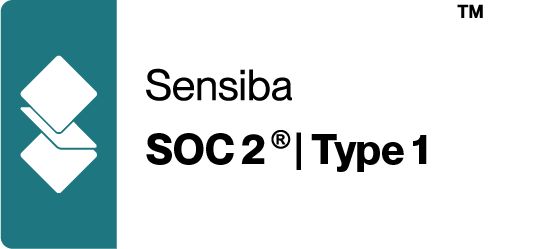From Promise to Proof: Reporting Indigenous Impact with Pehta
Credible. Auditable. OCAP™-compliant, SOC 2 Certified. The only Indigenous impact reporting platform built by Nations, for Industry — and trusted by the market.
The Pehta Project Statement is the definitive disclosure format for project-based Indigenous impact reporting.
Built directly on the Pehta Framework — the Indigenous Community Benefit Disclosure Standard.
Trusted by project owners and general contractors to demonstrate outcomes in employment, procurement, and community benefits.
Credible with Indigenous rights-holders and investors alike.
Explore the Pehta Project Statement
Discover Pehta Integrity
Pehta Integrity is the SaaS platform that powers transparency across entire supply chains.
Real-time insight into your Indigenous impact by project, geography, and framework category.
Contiguous supply chain tracking: every contractor, every layer, all the way down.
Observer access for funders, owner-reps, and oversight partners — ensuring accountability while protecting sensitive project-level detail.
Launching October 1.
Turnkey, Auditable Impact Statements Shaped by Indigenous Communities
Pehta, meaning "to listen or to hear" in Cree, represents a commitment to accuracy and respect in your organization's reporting to our communities expectations. A Pehta Statement is more than just a declaration; it is an unequivocal reflection of the opportunities and benefits you create within Indigenous communities.
It signifies that you have gathered Indigenous identity data from your employees in a manner that honors First Nations' wishes and upholds the principles of Free, Prior, and Informed Consent. It also reflects that you have reported your Indigenous employment in a way that respects both the quantity and quality of the employment provided. It shows that you recognize Indigenous supply chain spending according to the categories that First Nations and Indigenous communities expect. It means that you capture even the smallest contribution in the context of our Nations. It demonstrates your commitment to transparency, integrity, accountability, and credibility.
Most importantly, a Pehta Statement means you can present your metrics in a way that respects the sovereignty of Nations and communities in a comparable way.
Are you listening and hearing us?
Register for a Pehta Account Here
Projects
Why Pehta Reporting, and Not Your Reporting?
The reality is, our First Nation communities struggle to compare and hold accountable the multitude of vendors, suppliers, and contractors working on our lands. The reason? Industries Indigenous impact reports are all different and while we appreciate the time and effort your organization has put into its reporting, it’s not aligned with what we need.
Our communities see hundreds of different reports—some better than others, but none of them are equal or standard. With limited resources, we’re managing a constant stream of promises, partnerships, and industry obligations, all while trying to make sense of reports that don’t align. It’s not about the quality of your reporting—it’s about consistency and clarity for our communities.
Our Nations also understand that the government at the request of institutional investors are demanding more rigour and more credibility in industry reporting. Industry can only leverage the good work you create in the context of reconcilliation when each of you report the same way at all times in all cases. It is only our communities that can give credibility to your reports and Pehta is the path.
Pehta Reporting was created to cut through the noise. It gives us a standardized, auditable, easy-to-understand way to measure the real impact of your efforts, without the reporting itself getting in the way.
So, we’re not asking for more work on your end. Quite the opposite—help us simplify things. Aligning with Pehta removes a huge barrier we deal with daily. For us its about less confusion, more progress.
Pehta Framework Principles
Employment
The Pehta Framework’s approach to Indigenous employment prioritizes the quality and scale of total wages paid to Indigenous workers, categorized by community and presented in relation to the overall project payroll. While headcount and employment hours are essential metrics, they do not fully capture the qualitative outcomes that drive meaningful community impact. Pehta’s reporting standards ensure that employment is viewed holistically, addressing both quantity and quality to better support Indigenous workers and their communities.
Crucial to this approach is how Indigenous identity is captured. The integrity of diversity reporting is directly tied to how safe and comfortable employees feel in sharing their identities. Organizations that rely solely on voluntary self-identification surveys risk limiting the depth and accuracy of their employment data. Pehta employs an Anonymous Matched Diversity Analysis, allowing employees to share their identity while ensuring confidentiality. This method adheres to FPIC (Free, Prior, and Informed Consent) principles, enabling employees to withdraw their consent if needed. This ensures both robust data collection and the protection of individual rights, fostering a deeper understanding of Indigenous representation within the workforce.
Procurement
Pehta’s approach to Indigenous procurement focuses on the clear categorization of Indigenous businesses, including third-party certified, self-declared, Indigenous community-owned, and those maintaining strong relationships with Indigenous communities. This detailed analysis provides essential transparency, enabling both the community and clients to understand where and how scope awards are allocated within the supply chain. Tracking this spending by certification status, Indigenous business type, and community affiliation ensures accountability in how organizations support Indigenous vendors.
Pehta places an emphasis on the integrity of this procurement process by demanding transparency around certification bodies, such as the Canadian Council for Indigenous Business (CCIB) or Indigiconnect, and providing clarity on the relationships between businesses and the communities they serve. This transparency allows industries to evaluate procurement success and ensure that commitments to Indigenous businesses are met in a credible, measurable way. Ultimately, Pehta’s stringent reporting standards help distinguish businesses that authentically represent Indigenous interests, reinforcing the integrity of industry commitments to reconciliation and community benefit.
Project Benefits
The Pehta Framework’s approach to project benefits emphasizes the importance of a comprehensive evaluation of the economic, social, and cultural outcomes generated for Indigenous communities. This goes beyond financial transactions to include non-monetary contributions such as skills development, infrastructure improvements, and support for cultural preservation. Project benefits are tracked in detail, ensuring that each contribution, whether financial or in-kind, is reported transparently. Industries are expected to demonstrate how their efforts translate into long-term sustainable outcomes for Indigenous communities, creating a shared value framework that enhances community well-being while supporting project success.
Pehta places a strong focus on the credibility of reporting these benefits, urging organizations to provide clear, accurate disclosures. This involves categorizing contributions by type, quantifying non-financial impacts like professional services or in-kind donations, and reporting them in ways that respect Indigenous customs and community preferences. By adhering to these standards, industries foster trust with both Indigenous communities and the institutional investment market, showing their genuine commitment to Indigenous prosperity.
Indirect Impact (Employment and Procurement)
Indirect impacts, as defined by the Pehta Framework, encompass the broader influence industries have on Indigenous economic inclusion through their supply chain and employment networks. Pehta requires industries to align their procurement strategies with Indigenous economic development goals by engaging vendors and suppliers who actively support Indigenous procurement and employment. This approach amplifies the direct impact by influencing the entire supply chain to prioritize Indigenous involvement, thus driving more meaningful participation at all levels of project execution.
In terms of employment, Pehta emphasizes the importance of both direct and indirect employment opportunities created through these procurement relationships. Industries are encouraged to work with suppliers that uphold Indigenous employment standards and reflect Pehta’s values in their hiring practices. The goal is to ensure that Indigenous workers benefit not only from direct employment but also from opportunities throughout the extended supply chain, significantly expanding the scope of economic inclusion and community growth.
Learn more about the Pehta Framework at the Pehta Foundation: Link






